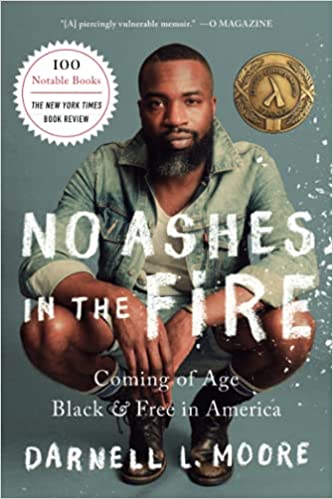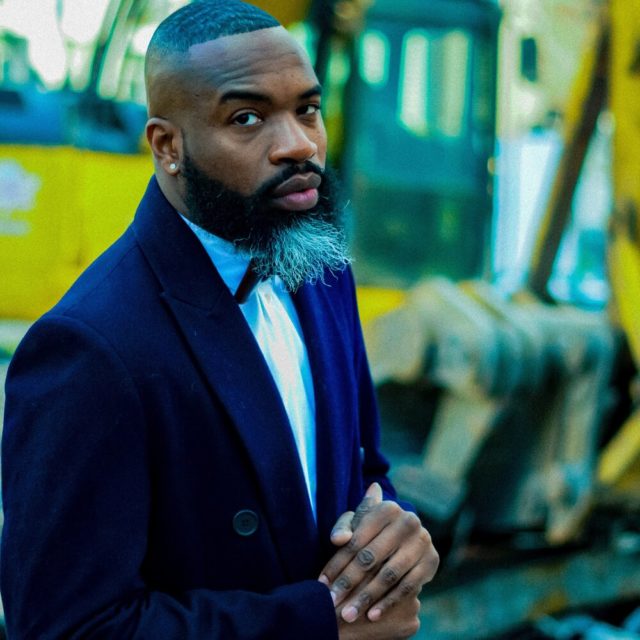Writer and activist Darnell Moore, the director of inclusion strategy for content and marketing at Netflix, is looking forward to being one of the featured keynote speakers at the upcoming YWCA Madison’s 20th Racial Justice Summit titled “Reimagining Us: Unapologetic Love, Transformative Justice, and Radical Imagination.”
“The goal is for all of us to reflect upon, think about, and address racial equity,” Moore tells Madison365. “I try to enter into spaces like this with an openness to how the spirit leads and what the audience is asking of us and the flow of the other panelists, but I think what’s most interesting at this moment is that we can talk a lot about the problem of racial inequity and white supremacy, but what are the solutions and what can we do to ameliorate and correct and redress that?
“Particularly from the standpoint of anybody in the room who would ask the question, ‘In my everyday life … what does this mean? How can we take these ideas and make it mean something in our everyday lives?’ That’s what I really want to talk about,’ he adds.
Moore has had a prolific career as a writer and has been published in various media outlets including MSNBC, The Guardian, Huffington Post, EBONY, The Advocate, OUT Magazine, Gawker, Truth Out, VICE, Guernica, Mondoweiss, Thought Catalog, and more. He grew up in Camden, N.J., a city that experienced quite a bit of crime and poverty in the 80s. Did Moore always want to be a writer way back when?
“It’s interesting. Writing is one of the things that I always knew that I could do easily. And that’s not to say that I think writing is easy, but it’s one of the first tools that I knew I had,” he says.
The first time that Moore had a stark awareness that writing could be an avenue for him to actually influence how people think was when he won a poetry contest in middle school in the ‘90s.
“That poem was submitted to the full citywide contest and I won for my category and I was so shocked because the poem, at age 13, believe it or not, was about my love of Blackness,” Moore remembers. “It was a poem that some would call ‘politicized art.’ And I was doing that work at age 13 and 14. But it came just naturally from the center of who I am as a young person who grew up in a post-industrial city that everyone in the media had talked about as a quote-unquote ‘hood,’ a ghetto bereft of virtue and goodness that was once Walt Whitman’s home … this glorious city.
“I was really aware at a very young age that because I was a working-class/working poor Black young person who was growing up in this space that the way in which I experienced the world was vastly different than some others,” he adds. “And I was writing about that. So writing has always been a tool for me to communicate not only my own worldview, but to help others think about theirs and interrogate it.”
In 2018, Moore wrote his memoir, titled “No Ashes in the Fire: Coming of Age Black and Free in America” which explores his experiences growing up in poverty in New Jersey, and his struggles with his personal identity as both Black and queer.

He calls the book a “love letter to Camden, New Jersey.” The memoir won the 2019 Lambda Literary Award, was listed as a 2018 New York Times Notable Book, and a Barnes & Noble Discover Great New Writers’ pick.
“That book is pretty much an exploration of my coming of age growing up as a young, Black, quirky boy who is learning something about what it means to grow up without economic resources … who is growing up to young parents in the age of Hip-Hop, the age of AIDS/HIV. It was the epicenter of all those things in a space that is predominantly Black and Puerto Rican … in a hometown that was demeaned and mystified by everybody else,” Moore says. “I just explored that. It was a love letter to Camden, New Jersey.
“When I look at the book now, I’m like, ‘Wow. There’s a young person in Camden who can go into a bookstore and they’ll be able to see someone that looks like themself.’ It’s an award-winning book and it’s a book about them and their city and their space in the world that they live in,” he adds.
Moore is currently at work on his second book, which is tentatively titled, “Unbecoming: Visions Beyond the Limits of Manhood.” What does he like best about being a writer?
“As I get older, and you see the gray in my beard more, I like the solitude. Most of the work that we do as writers is in solitude,” Moore says. “But I love how the written word can catalyze paradigm shifts. I have people who contact me after I write something – I had somebody contact me on Facebook after I wrote this personal piece about my own struggles with suicide and depression. He told me, “I read what you wrote, and I decided to live because of what I read.’
“That’s very powerful. That person is still alive and in a Ph.D. program, married to his partner,” Moore adds. “I can look back several years and remember how I made a difference in a person’s life. There’s the art of writing and there’s the profound impact writing can have on people’s lives … that’s one of the reasons that I just love it.”
Moore is the co-managing editor at The Feminist Wire and the writer-in-residence at the Center on African American Religion, Sexual Politics and Social Justice at Columbia University. He has dealt with issues of racism and LGBTQ rights as a regular contributor to several media outlets such as Feminist Wire, Ebony magazine and The Huffington Post,
Moore recently started the “Being Seen” podcast which is focused on the gay and queer Black male experience and is “an in-depth exploration of culture’s role in resolving the tension between how we are seen and how we see ourselves.”
“The title of the podcast speaks to what it attempts to do and that is to really make space for Black, queer, gay, bisexual, trans men to be seen and heard and celebrated and to have their questions interrogated and to be lifted up. I was happy to come on board to do that. I love to be able to help spark conversations,” Moore says. “And it creates space for those who tend to be talked about within the cultural space, but who often don’t get a chance to do the talking on their own terms.”
Moore was honored with the 2012 Humanitarian Award from the American Conference on Diversity for his advocacy in the City of Newark, where he served as Chair of the LGBTQ Concerns Advisory Commission. Moore was appointed by former City of Newark Mayor Cory Booker, now a U.S. senator, to that position, the first of its kind in the state of New Jersey.
“Cory [Booker] is someone I’d call a friend. We’ve been involved in each other’s lives and each other’s work for over a decade now. I’ve always gravitated towards his big-hearted humanity. It was a joy working with him,” Moore says. “We were proud of that position, which was the first of its kind in New Jersey. I was honored to be part of that work.”
This year, the YWCA-Madison Racial Justice Summit will offer a combination of virtual keynotes and online community spaces from Tuesday-Thursday, Sept. 28-30, as well as a limited selection of curated in-person offerings on Wednesday, Sept. 29 at the Monona Terrace Convention Center and other locations. Moore will be a keynote speaker along with other notable names like Valarie Kaur, Mariame Kaba, Mia Mingus, Tokata Iron Eyes, adrienne maree brown, and Parker J. Palmer.
“I am looking forward to this event and as much as I will be there to be present and to be able to offer perspective, I’m also there to learn and to listen and to build community,” Moore says.




























